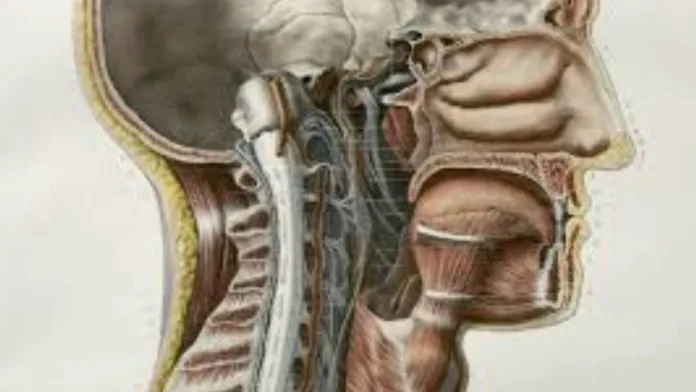Unprecedented discovery emerges from unlikely study on prostate cancer
In a groundbreaking revelation that challenges our understanding of the human body, scientists in the Netherlands have accidentally uncovered a previously unknown organ, hidden just beneath our faces. Contrary to the belief that we’ve unraveled the mysteries of our anatomy, this astonishing find proves that there’s still more to discover within ourselves.
Back in 2020, researchers at the Netherlands Cancer Institute were engrossed in studying prostate cancer when serendipity struck. Their focus on CT and PET scans, utilizing radioactive glucose to illuminate tumors, led them to an unexpected sighting in the human head. Astonishingly, they stumbled upon a set of salivary glands nestled behind the nose, an area now christened as the ‘tubarial salivary gland.’
Situated in the nook where the nasal cavity meets the throat, this newly identified organ has eluded scientific detection for centuries. Dr. Wouter Vogel, radiation oncologist at the Netherlands Cancer Institute, explained that the glands require “very sensitive imaging” to be spotted and are “not very accessible.” The discovery challenges our previous understanding of the nasopharynx, where only microscopic glands were believed to exist.
While pondering how these glands remained hidden, Dr. Vogel revealed, “People have three sets of large salivary glands, but not there.” The tubarial salivary glands, which lubricate and moisten the area behind the nose and mouth, have now opened a new realm of possibilities for medical research and treatment.
Although the discovery was accidental, scientists anticipate significant implications for cancer treatment. They believe that complications arising from radiotherapy, a common cancer treatment, might be linked to these newly found glands. The challenge now lies in preserving these organs during treatment, as even a “single misdirected zap” could result in permanent damage.
As the medical community grapples with this unforeseen revelation, the potential benefits are substantial. Preserving the tubarial salivary glands during radiotherapy could enhance the quality of life for cancer patients. The accidental discovery serves as a testament to the perpetual surprises hidden within the intricacies of the human body.
